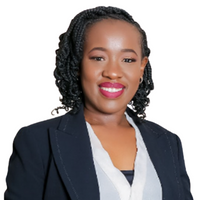Traditional risk management strategies in global development have long mirrored a rigged game of pass-the-parcel, where the most vulnerable — national and local civil society organizations (CSOs) — always end up holding the bag. This outdated approach not only undermines sustainable development but also grassroot organizations’ potential by imposing unfair burdens on those who lack the resources to face them. It is a system that weakens the effectiveness of development initiatives and perpetuates uneven power dynamics that undermine CSOs’ perspectives, especially those in the Global South.
As the global development sector progresses towards locally led development and embraces more sustainable and inclusive growth, isn’t it time we changed the rules of game?
This blog introduces the concept of equitable risk sharing—shifting from a top-down transfer of risks to a collaborative, fair sharing model that recognizes and respects the interconnected nature of risks within the development ecosystem.
What is equitable risk sharing?
Equitable risk sharing in the development sector is about working together to manage risks collectively. It involves a systemic process of distributing risks among funders, INGOs, and CSOs based on their organizational capacities, expertise, and resources to manage and mitigate those risks. This approach ensures that each stakeholder handles a fair share of the risks. Unlike traditional methods, where risks are systematically passed down from donors to INGOs and then to CSOs, this approach ensures a more balanced distribution that protects CSOs from a double burden After all, CSOs must manage their inherent risks as implementers and those transferred to them, which are often made worse by strict compliance requirements and limited resources.
This method also fosters an environment where all stakeholders work together to manage the potential impacts of risks, emphasizing shared responsibility. Overall, risk sharing enhances equitable partnerships and supports locally led development.
This collective approach recognizes and respects the interconnectedness of all parties in the development ecosystem. It advocates for co-ownership of risks, bringing everyone to the table for a fair distribution of responsibilities. When done right equitable risk sharing not only acknowledges the vital contributions of CSOs but also amplifies their voice, advancing the locally led agenda.
Moving towards equitable risk sharing
At its core, equitable risk sharing relies on the following aspects:
- Trust-based and flexible funding
At the heart of equitable risk-sharing lies trust. This means adopting funding models based on mutual trust that allow adaptable risk management strategies. Flexible funding allows recipients to allocate resources where they are most needed, which is crucial for quickly addressing emerging risks.
Another aspect of trust in funding starts with the due diligence process, often used to assess trustworthiness. This process can disqualify potential partners based on their organizational capacity, imposing international standards that may not fit with local contexts. To build trust, the due diligence process must shift from finding faults to actively enhancing organizational capacity, including training and proper structures. This shift will allow organizations to go through due diligence, engage meaningfully with stakeholders, and create a foundation for equitable risk-sharing.
- Inclusive and innovative risk strategies
Equitable risk-sharing calls for all of us in the development sector to propose innovative approaches to risk management. For example, adapting collaborative risk assessments and co-designing risk mitigation plans from the start sets the stage for shared understanding and aligned risk strategies.
The Risk Sharing Framework, introduced at the 2023 Grand Bargain, highlights the importance of conducting joint risk assessments at the start of development initiatives. This collaborative approach helps us identify potential challenges together, ensuring all parties are on the same page and that strategies are synchronized. This inclusive method assesses each stakeholder’s risk management capabilities and facilitates discussions on the equitable distribution of resources to manage risks effectively.
- A balanced approach to compliance
Instead of enforcing a rigid, one-size-fits-all policy, we need to advocate for a balanced approach to compliance. Frameworks should be personalized to match each organization’s specific size and operational capabilities, preventing smaller entities from being burdened by tedious requirements that hurt their efficiency and ability to manage risks effectively.
- Strengthening competencies for risk management
Many INGOs and funders have dedicated risk and internal control departments and the means to engage external consultancies. However, local CSOs, especially those in the Global South, often lack these resources leaving them vulnerable to external and internal shocks. This is especially the case with the prevalent practice of top-down risk transfer.
Strengthening CSOs’ organizational capacity to manage risks is crucial for achieving equitable risk sharing. This involves dedicating funds for the development of risk and compliance skills, investing in risk and compliance management systems, providing support for system development, and ensuring access to tools and technologies.
Without these resources, meaningful risk-sharing remains out of our reach. Donors should provide sufficient resources to allow all actors—regardless of size or location—to fully engage in effective and equitable risk management practices. This commitment is essential for fostering a resilient, equitable, and collaborative development ecosystem — one of the main goals of locally-led development.
- Shifting mindsets and overcoming systemic barriers
Equitable risk sharing is not just a method but a mindset that requires a profound change in how the sector views and manages risk. It calls for funders to provide financial support, embrace greater flexibility, and develop a deep understanding of each partner’s unique skills, knowledge and challenges. Funders play a crucial role in this shift, as they influence the sector’s risk management practices through their funding decisions and policies. This shift is essential for implementing equitable risk-sharing practices and addressing the deep-rooted power imbalances affecting relationships within the sector.
To truly change how risks are managed in our sector, we must urgently move beyond the hierarchical, top-down models that have long dominated. We need a system that promotes trust and mutual accountability—a paradigm shift beyond simple adjustments. The time for this shift is now, and the benefits it brings are too significant to ignore.
This transformation must foster open dialogue and create spaces where we all can have meaningful discussions about risk. Transparent communication between funders and engaged organizations regarding risks is crucial to ensure that all parties are aligned and agree on the terms of risk sharing, fostering a truly collaborative environment.
Looking ahead
In the development sector, there is a pressing need to reevaluate current risk management practices. Equitable risk-sharing presents a transformative opportunity to build more resilient systems by fairly distributing risks among all stakeholders, from funders to INGOs and CSOs.
At this critical juncture, the call to action is clear: We must dismantle outdated frameworks of hierarchical risk governance and build a new, inclusive framework grounded in equity and collaboration. This isn’t just a change but a necessity that will define the future of locally led development. It will also pave the way for a development sector that is resilient, equitable, and truly collaborative.
Need support strengthening your risk and compliance practices? Humentum is at the forefront of transforming the global development sector through strengthening risk and compliance operating models. We collaborate with funders, INGOs, and CSOs to innovate and improve our collective impact.


